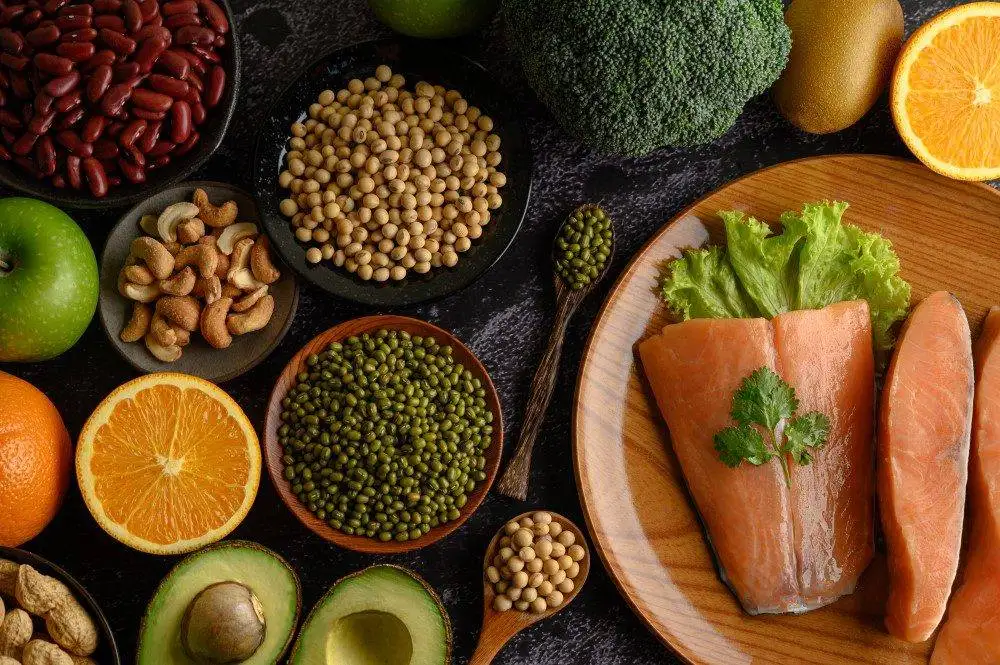Healthy eating does not need to be expensive. You can eat healthy meals and keep your grocery bills low with the right strategies. Healthy eating is often associated with expensive organic foods and specialty health food, but you can still make good choices without going broke. You can have a healthy diet and still stay within your budget by planning ahead, buying wisely, and utilizing food efficiently.
Plan your meals ahead of time to save money and eat healthily. Planning your meals in advance helps you to avoid impulse grocery shopping, and it reduces food wastage. Create a weekly meal plan based on affordable and nutritious ingredients before you head to the grocery store. Select meals that use similar ingredients to avoid wasting food. Making a list and sticking with it will also help you to avoid making unnecessary purchases. This will keep your budget in check.
Bulk purchases are another way to save money on healthy food. Bulk prices are available on staple foods like rice, beans and lentils. Whole grains, oats and oat bran, are also often cheaper. These items are available in bulk at lower prices, and you can save money by buying them in large quantities. Nuts, seeds and dried fruit can also be purchased in bulk. They are able to be stored without deteriorating for a long time.
Local and seasonal produce is a great way to stay healthy without spending too much. In-season fruits and vegetables are often fresher, more delicious, and less expensive than those that are imported or out of season. You can find great deals on fresh fruits and vegetables by visiting local farmers’ market or shopping at your grocery store. Consider growing your own herbs and vegetables at home. Even if you only have a small container garden, this is a great way to save money.
Another way to maintain a healthy diet and save money is by minimizing processed foods. Fast food, packaged snacks and ready-made meals are more expensive than unprocessed, whole foods. They also contain unhealthy fats and sugars which can be harmful to your health. Cook at home with simple, nutritious ingredients instead of buying prepackaged meals. Making your own meals is not only cheaper, but you can also control the quality of the ingredients.
It is important to include protein in a healthy diet. However, it doesn’t have to be costly. Incorporate more plant-based proteins into your diet instead of only eating expensive meats. Beans and lentils in cans or dried form are very affordable and full of nutrients. Choose meat cuts that are more affordable, such as chicken drumsticks or thighs, rather than breasts. You can reduce costs by buying meat in bulk and looking for specials.
Reduced food waste is a key component of a healthy diet on a budget. Food is wasted in many households, resulting in money lost. To reduce food waste, you can store it properly, freeze leftovers and reuse ingredients in creative ways. You can use vegetable scraps to make broth, overripe fruit can be made into baked goods or smoothies, and old bread can be transformed into croutons. You will get the best value from your purchases if you use everything that you purchase.
Compare prices and use coupons and discounts to save money. Weekly specials are offered by many grocery stores, as well as loyalty programs. These can provide you with additional savings. Store-brand products are usually just as healthy as name-brands, but they’re also more affordable. Shopping at wholesale clubs or discount grocery stores can also result in significant savings.
You can stretch your budget by cooking in bulk and preparing meals beforehand. You can save money and time by cooking large quantities and freezing the leftovers. You can always prepare a healthy meal in advance, and reduce the temptation to order take-out. Batch cooking is ideal for simple dishes such as soups, stews and casseroles. They can also be easily reheated.
It is not necessary to spend a lot of money on hydration. Stick to water instead of buying sugary drinks, juices in bottles, or expensive drinks. It is more cost-effective to invest in a reusable bottle of water and drink tap water or filtered water. Herbal teas or homemade fruit-infused waters can be a great way to add variety and save money.
Finally, adopting a minimalist diet is beneficial to both your budget and your health. Focus on simple, whole ingredients instead of expensive diets or specialty health foods. It is not necessary to buy expensive or exotic items in order to have a diet that includes whole grains, vegetables and fruits, lean protein, and healthy fats. You can have a balanced diet by prioritizing budget-friendly, nutritious foods.
With a little bit of planning and smart shopping, it is possible to eat healthy without breaking the bank. You can maintain a healthy diet on a budget by planning your meals, purchasing in bulk, selecting seasonal produce, reducing the amount of processed food, and minimizing waste. These tips will help you to enjoy healthy meals without breaking the bank.



